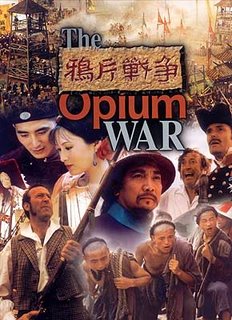
The year was 1839. A year that would have unparalleled consequences to China and the Chinese people for the next 150 years.
That was the year that Commissioner Lin of Guangzhou (Canton) ordered the destruction of British ships and their deadly cargo—opium. For the next three years, the Middle Kingdom, a land-based empire, was fighting the greatest navy the world had ever known. The result was not surprising. Imperial China was defeated and consequently forced to cede to Great Britain the tiny island of Hong Kong, among other concessions. When the Emperor affixed his imperial insignia on the Treaty of Nanking in 1842, he probably thought he was only willing away an insignificant rock to a barbarian tribe. Little did he know that he was signing the death warrant of his own imperial household.
From 1839 onward, China was never the same again. The imperial regime lumbered on—facing defeat after defeat--until it was overthrown in 1911. More importantly, Chinese psychology was forever changed. China and Chineseness went from the center of the universe to become the sick man of Asia. While China decayed, Japan, an upstart really, modernized to the point that it was able to quite easily conquer its cultural progenitor in the 1930’s.
On October 1, 1949, Chairman Mao proclaimed in Tiananmen Square that China had arisen. In the political sense, yes. With the unification/liberation of the country, the Communists were able to unify Mainland China for the first time since the mid-1800’s. But not psychologically or spiritually. In 1949, China was utterly impoverished from wars and mismanagement. The sick man of Asia may have had his own house, but it was the proverbial dump.
Thus, the psychological importance of the Shenzhou missions. With Shenzhou V two years ago, China became the third country ever to launch a man into space, and this week’s successful Shenzhou VI mission manifestly demonstrated that this capability is no fluke. Technologically speaking, there’s nothing unique or innovative about the Shenzhou crafts; in fact, they are based on the Soviet/Russian Soyuz spaceships.
But the Shenzhou expeditions had never been about technological innovation. They are about restoring national pride and national spirit to a proud people with a long and admirable history. That these achievements in space may temporarily prop up an ailing Communist regime in Beijing is interesting but not central to the Chinese people and the Chinese diaspora. For the Chinese, Shenzhou may just have purged the ghosts of 1839.

2 comments:
Wow! Well written and well crafted within the context of Chinese history!!!!
Thank you for writing this piece.
Post a Comment